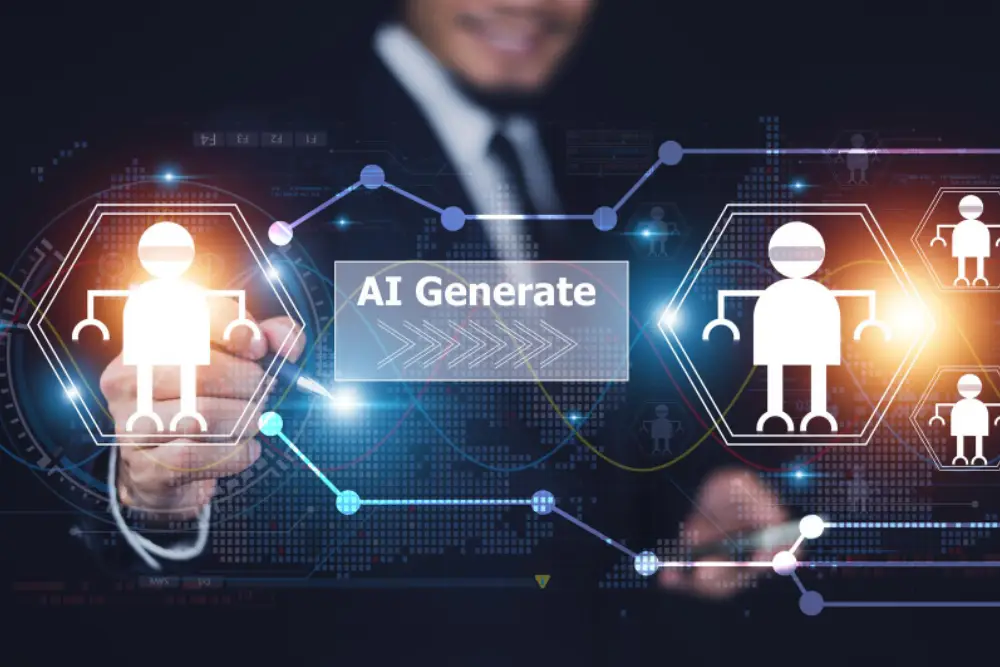Strategy on talent and technology vis-a-vis processes for productivity and efficiency could spell long term success for a business. Work optimization strategies are critical to an organization’s success and are capable of boosting productivity to stellar levels. By leveraging workforce optimization, organizations are able to improve decision-making capabilities, decrease expenses, and cultivate an engaged and flexible team.
A huge aspect of optimizing the workforce is practicing decision making in the space of acquiring the right talent. For an organization to be successful, its employees must be pof top quality. Although recruiting is a key part of attaining and retaining employees, it is not the only part – that is the process. In essence, talent acquisition is so much more than simply filling gaps. It’s a full-blown project management event that features anticipation-based planning, extensive candidate mining and scrubbing, detailed interviews and appropriate talent selection. It’s a precise human resource technique focused on assembling a high performing team to drive growth in the organization.
At the very least, the emergence of AI-powered workforce optimization is reinventing talent acquisition, making it a business asset. Businesses can automate their hiring cycle and select well-suited candidates while saving money with the assistance of artificial intelligence, which eliminates the non-frill recruitment processes. From holistic candidate evaluation and forecasting to decision making without biases, AI makes it possible for businesses to develop better and more diverse teams.
Let’s measure how AI is useful in staffing technology and how it improves workforce optimization with a specific focus on talent acquisition.
AI in Workforce Optimisation: Changing the Narrative on Recruitment & Talent Acquisition
The conventional process of talent acquisition with its heavy reliance on manual and people-centric approaches is very inefficient, time-and-resource intensive and prone to various biases, especially when tackling a high number of applications. Because of this, these approaches risk a narrow scope in their search for potential candidates and, thus, limit the recruitment of diverse talent. It is for these reasons that changes are required. The integration of AI technology in the traditional approaches promises to alleviate some of these problems.
The AI staffing market is peaking in demand as finding and retaining top talent becomes difficult for businesses around the world. According to a report by Harvard Business Review, 63% of leaders who participated said their organization automated parts of the hiring and sourcing processes while 97% of them said it has been beneficial.
Businesses are leveraging ML algorithms along with data to reform outdated recruitment methodologies into strategic, focused, and systematic approaches. AI can target specific candidates at a high-level of precision. It also can automate monotonous activities, remove biases, and completely change the approach of companies towards talent acquisition. As a result, firms are able to build robust and future ready teams.
Below are the areas where tomorrow’s businesses add value to optimize the vital talent acquisition process:
1. Better Recruitment and Onboarding
The global AI recruitment industry is valued at roughly $661 million in 2023 and is projected to grow at a CAGR of 6.78% till 2030. As per stats from a report, 62% of recruiters are optimistic about AI driven methods of recruitment.
Advanced algorithms detect the most suitable candidates from a large talent pool much faster and more reliably than any human. These algorithms are also able to analyze resumes and match candidates to roles based on skills, cultural fit, and previous experience.
AI powered technologies can enhance onboarding by tailoring training materials to individual learning needs and AI can do administrative work, which makes new employees feel welcomed and adjust to the workplace a lot faster. This results in less time spent on recruiting, creates a better employee experience, and diminishes discrimination towards groups of people.
2. Efficiency
The use of AI in recruitment strategies makes hiring a less time intensive process. Up to 44% of recruiters emphasize time saving as a primary reason to implement AI. Other surveys reveal similar sentiments as well, where up to 67% of hiring decision makers feel the main advantage of AI in the hiring process is time efficiency.
AI makes the hiring process more efficient by automating tasks like resume screening, candidate searching, and interview scheduling. By quickly identifying the most suitable candidates, AI reduces the time HR spends on recruitment decision making.
3. Cost Reduction
There are also significant savings associated with hiring new employees when mundane tasks such as reviewing resumes, candidate selection, and interview booking are automated. Did you know that AI is significantly aiding HR activities and processes in North America, saving as much as 40% in that region?
AI tends to shrink the scale of manual work necessary, fast-track employment processes, and lessen the engagement of third-party recruiters. Moreover, through predictive analytics, AI ensures hire decisions are made carefully, resulting in lower turnover and rehiring expenses, which, over the years, can become extremely costly. Moreover, AI targeting in job add campaigns increases the quality of applications received, leading to lesser wastage on unproductive recruitment drives.
4. Bias Reduction
AI similarly addresses yet another critical challenge in the selection of talent, which is biases and encourages more workplace diversity and fairness. A survey reported that 37% of adults in America consider ethnic or racial bias as a serious issue when it comes to hiring. This notion is supported by the 48% of hiring managers who are reported to have some form of prejudice that in many instances negatively affects applicant interviews.
AI is rather promising in tackling bias. This would prevent the right candidate from getting filtered out, something that 68% of recruiters strongly agree on, as per a report.
5. Candidate Sourcing and Upskilling
AI has proven to be extremely effective during the candidate sourcing process of new employees. 58% of recruiters using AI were able to find candidates with the correct qualifications. Furthermore, AI is capable of learning the void in skills and recommending solutions to fill it. This assures the workforce remains agile to rapid advancement in technology trends and shifts in the market, helping prepare a stronger hiring strategy.
6. Employee Engagement and Retention
Many businesses face a challenge attracting new employees, but perhaps even more difficulty retaining talent. According to another survey, 60% of organizations that participated indicated they use some form of AI for talent management. AI can analyze feedback, performance, and sentiments to estimate employee dissatisfaction and burnout. Once these parameters are identified, timely measures like customized benefits and hybrid mode employment can be implemented to retain the employees.
AI-Supported Tech Staffing: Last Step to Maximizing Talent Utilization Potential is Stride Digital
At Stride Digital, we vertically transform tech-staffing through innovative precision and repurposing. Our goal is to effortlessly combine exceptional talent with advanced technology within the organization, allowing it to reach its goals. From augmenting your team with best professionals to evaluating the tech skills of your employees in-depth, we make sure you have the right team to face the challenges of today’s world. Whether it is hiring specialized personnel and increasing capacity for aggressive projects, we have the means to deal with it and will keep your interests on priority.
We implement risk-free solutions aimed at fulfilling customer’s needs by means of staff augmentation as well as solving their hiring problems through specialized talent acquisition and contract-to-hire models. With Stride Digital’s tech staffing services, companies can scale effectively, enhance productivity, and embed-focus on core organizational functionsoto matter what — whether it is increasing in.
Summary
Putting together a well-rounded team is an effort that is not to be taken lightly considering how an employee’s expertise is intricately interwoven to the organizational success. Slowly but surely, it is becoming the norm to use AI suited for talent procurement as the demand for tech experts continues to increase.
Stride Digital gives you the opportunity to witness the perfect harmony between people and technology.




